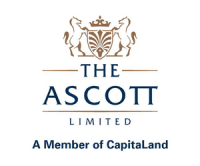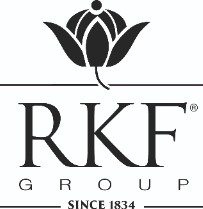
CAPITALAND ASCOTT TRUST PARTNERS WITH THE INTERNATIONAL FINANCE CORPORATION ON ITS FIRST SUSTAINABILITY-LINKED BOND IN THE HOSPITALITY SECTOR
CapitaLand Ascott Trust (CLAS) has partnered with the International Finance Corporation (IFC) to launch IFC’s first sustainability-linked bond in the hospitality sector globally. IFC, a member of the World Bank Group and the largest global development institution focused on the private sector in emerging markets, is the sole subscriber for the JPY16.5 billion (about S$157.4 million) sustainability-linked bond. |
 |
CAPITALAND ASCOTT TRUST PARTNERS WITH THE INTERNATIONAL FINANCE CORPORATION ON ITS FIRST SUSTAINABILITY-LINKED BOND IN THE HOSPITALITY SECTOR
CapitaLand Ascott Trust (CLAS) has partnered with the International Finance Corporation (IFC) to launch IFC’s first sustainability-linked bond in the hospitality sector globally. IFC, a member of the World Bank Group and the largest global development institution focused on the private sector in emerging markets, is the sole subscriber for the JPY16.5 billion (about S$157.4 million) sustainability-linked bond. |
Catégorie : Monde - Économie du secteur
- Développement durable
Ceci est un communiqué de presse sélectionné par notre comité éditorial et mis en ligne gratuitement le 01-11-2022
Enregistré par la société CapitaLand
The sustainability-linked bond is being issued as part of CLAS’ S$2 billion Multicurrency Debt Issuance Programme with a fixed coupon rate of 1.05% per annum and is paid semi-annually in arrears. The seven-year bond will mature in November 2029.
Proceeds from the bond will be used to refinance CLAS’ existing borrowings and to further decarbonise three of CLAS’ serviced residences in Southeast Asia, namely Ascott Jakarta in Indonesia as well as Ascott Makati and Somerset Millennium Makati in the Philippines.
The three serviced residences are expected to achieve a 40.5% reduction in electricity consumption by 31 December 2028. The projects must also obtain IFC’s Excellence in Design for Greater Efficiencies (EDGE) certification within the same timeframe.
The electricity consumption reduction target is aligned with the targets set out under the CapitaLand 2030 Sustainability Master Plan.
The Master Plan outlines the Group’s efforts to accelerate its transition to a low-carbon business, improve water conservation and resilience, and to enable a circular economy.
Ms Serena Teo, Chief Executive Officer of CapitaLand Ascott Trust Management Limited and CapitaLand Ascott Business Trust Management Pte. Ltd. (the Managers of CLAS) said: “We place sustainability at the core of everything we do. Dovetailing our financing efforts with our environmental, social and governance efforts further affirms our commitment towards responsible growth. To date, CLAS has raised about S$450 million through sustainable financing. CLAS continues to collaborate with like-minded stakeholders in the financing and investment community to fight climate change through our collective efforts. Currently, 35% of CLAS’ portfolio is green-certified and we remain on track to green 50% of our portfolio by 2025 and our entire portfolio by 2030.”
Ms Kim-See Lim, IFC’s Regional Director for East Asia and the Pacific, said: “We are delighted to support CapitaLand Ascott Trust, Asia-Pacific’s largest lodging trust, in its efforts to help address the climate crisis in the region through IFC’s first sustainability-linked bond in the hospitality sector. Our investment will support the decarbonisation of a portfolio of energy-intensive buildings, while also ensuring that the energy reduction is specifically aligned with Net Zero targets.”
CapitaLand Ascott Trust consolidates reputation as a leader in sustainability in the hospitality sector
CLAS has achieved several firsts as part of its global sustainability drive, further consolidating its reputation as a leader in sustainability in the hospitality sector. In October 2022, CLAS was named ‘Global Sector Leader Hotel - Listed' and ranked first in the ‘Asia Pacific Hotel – Listed’ category in the 2022 GRESB Real Estate Assessment (GRESB) for the second consecutive year. CLAS also scored ‘A’ for public disclosure for the second year running. CLAS is also the only hospitality trust from the ‘Asia Pacific Hotel – Listed’ category to receive the highest rating of 5 stars this year, placing CLAS in the top 20% of the benchmark globally.
In April 2022, CLAS issued its first sustainability-linked bond of S$200 million under its newly established Sustainability-Linked Finance Framework. CLAS is the first hospitality trust globally to issue a sustainability-linked bond and is also the first listed real estate trust in Singapore to issue a sustainability-linked bond. The bond was well-received by investors and was about 2.2 times oversubscribed.
CLAS has also received multiple accolades in recognition of its excellence in corporate governance and investor engagement. In August 2022, CLAS was ranked first amongst REITs and Business Trusts on the Singapore Governance and Transparency Index (SGTI) 2022 for the second consecutive year. In the same month, CLAS also won the gold award for ‘Best Investor Relations’ amongst REITs and Business Trusts at the Singapore Corporate Awards 2022.
Partnership with IFC to pioneer a green certification for serviced residences
In 2018, CLAS’ sponsor, The Ascott Limited (Ascott) partnered with IFC to pioneer a green certification for serviced residences, as part of IFC’s EDGE framework. The new international green benchmark for serviced residences paves the way for more serviced residences to achieve an accredited and well-recognised green certification. Ascott’s partnership with IFC also includes an exchange of knowledge and research on sustainable design of serviced residences in developing regions such as Asia-Pacific, Indochina, and Africa.
An innovation of IFC, the EDGE certification empowers emerging markets to scale up resource-efficient buildings in a fast, easy, and affordable way.
It enables developers and builders to quickly identify the most cost-effective strategies to reduce energy use, water use and embodied energy in materials.
|
|





